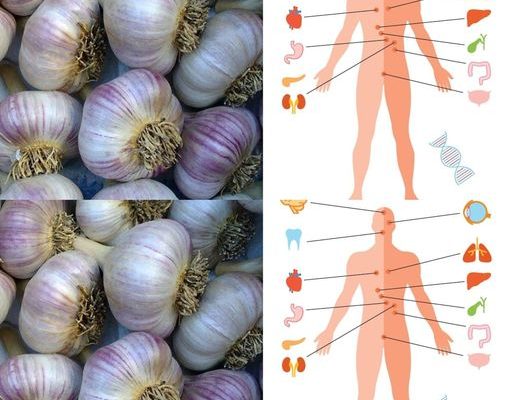What is Garlic Good For? Benefits and Medicinal Uses for Garlic
In addition to being a common component in kitchens all over the globe, garlic is a potent superfood with a wide range of therapeutic and physiological advantages. Its extensive history as a therapeutic agent, spanning thousands of years, attests to its importance in the prevention and treatment of illness. Here are a few of the main advantages and therapeutic applications of garlic: Boosts the Respiratory System Garlic is well known for strengthening immune system qualities. It has ingredients like allicin, which has been shown to strengthen the body’s white blood cells’ ability to fight off viruses like the flu and the common cold. Lowers Blood Pressure
People with known high blood pressure (hypertension) have been shown to benefit from large dosages of garlic in lowering their blood pressure. Nitric oxide, which is produced when garlic is consumed, helps to relax blood vessels, making supplements containing garlic known to be just as efficient as certain common blood pressure drugs.
3. Reduces Levels of Cholesterol LDL and total cholesterol may be reduced with garlic. Supplements containing garlic seem to lower total and/or LDL cholesterol in those with elevated cholesterol by ten to fifteen percent. Its antioxidant qualities also lessen the risk of heart disease by preventing oxidation of LDL particles. Organic Antimicrobial and Antifungal
Garlic’s allicin is well recognised for having antifungal and antibacterial qualities. It is known to fight against a variety of germs, including E. Coli. Allicin may combat fungal diseases such as ringworm and athlete’s foot and provides an excellent natural remedy for skin problems.
5. Enhances Bone Health Garlic may be a helpful natural remedy for osteoporosis and bone health in women as it has been shown to reduce bone loss by raising oestrogen in females.
6. Properties of Antioxidants Antioxidants found in garlic protect against ageing and cell damage. It may lessen the likelihood of dementia and Alzheimer’s by preventing oxidative damage from free radicals. detoxification
It has been shown that high garlic dosages guard against heavy metal toxicity-related organ damage. Garlic lowered blood lead levels by 19% in a four-week trial, and as a consequence, symptoms including headaches and blood pressure decreased.
8. Preventing Cancer Frequent use of garlic has been linked to a lower chance of developing breast, colon, stomach, esophageal, and pancreatic cancers, among other malignancies. It is thought that the antioxidants in garlic lessen DNA damage, thereby preventing cancer.
Methods for Medicinal Use of Garlic Raw Garlic: You may get the most health advantages by eating raw garlic. Even one clove a day might have a major positive impact on your health.
Garlic supplements are a great choice if you want to stay away from garlic breath. They are available in a variety of forms, including tablets, oil, and garlic extract.
Cooked Garlic: Although raw garlic has more flavour, cooked garlic is still very beneficial to health and may be used in a variety of recipes.
Take Care While garlic is generally safe, consuming too much can cause discomfort, including upset stomach, bloating, diarrhea, body odor, and bad breath. It may also interact with certain medications, such as blood thinners, so it’s advisable to consult a healthcare provider if you plan to use garlic as a regular supplement. When added to your regular diet, garlic’s wide range of health advantages make it an effective natural cure that may improve your general health. More Recipe Of Garlic Bread
Air Fryer Pull Apart Cheese Garlic Bread

Turkish Garli cBread Delight: A Simple and Delicious Pan Bread Recipe

Plant-based garlic bread with cream cheese

Air fryer garlic bread is just too good

Cheesy Garlic Bread Recipe (No Kneading Required)




